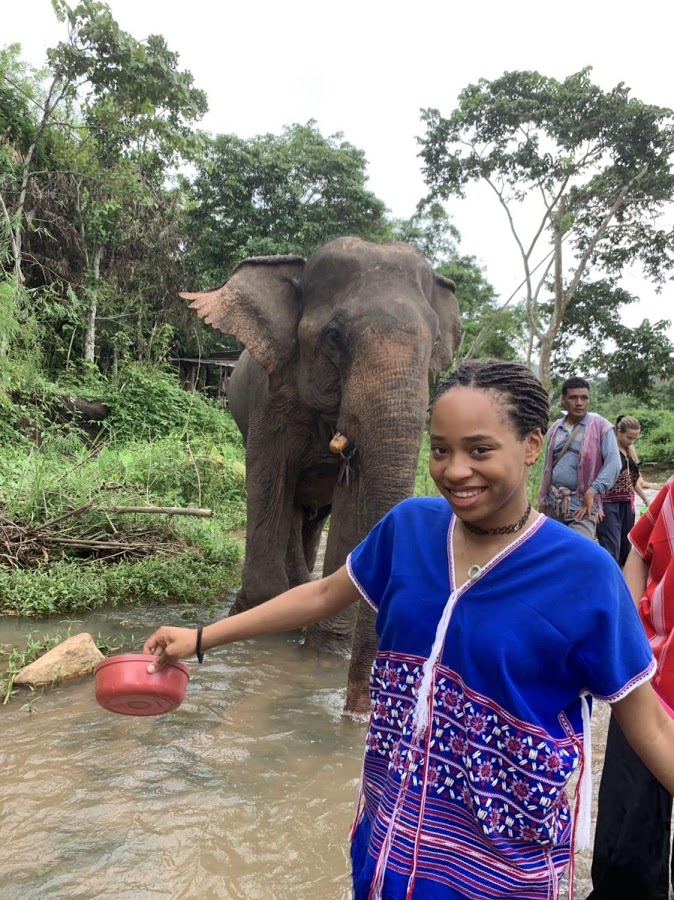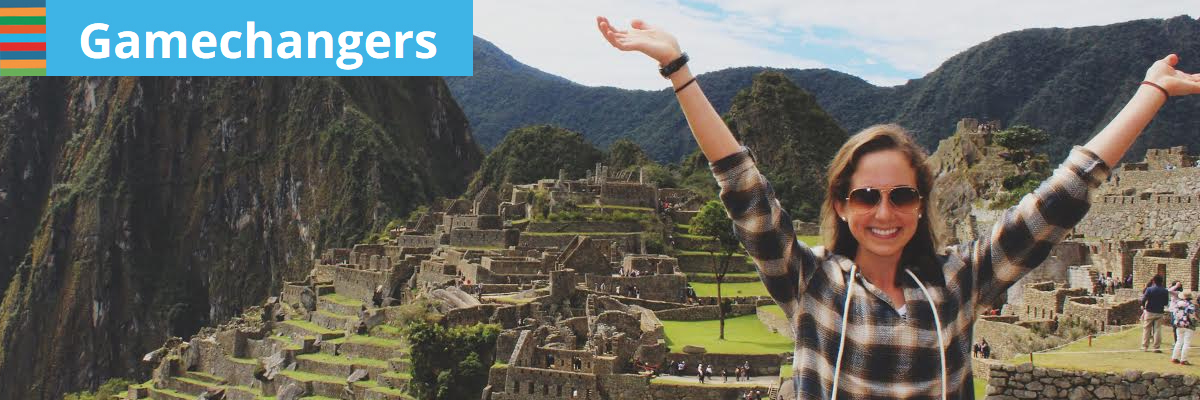We recently caught up with Scarlett Walker, a four-time Global Leadership Adventures alumna, to hear how her experiences abroad shaped her journey from a nervous first-time traveler to a confident young leader. From Costa Rica to Thailand, Greece to the Dominican Republic, Scarlett embraced each adventure with an open heart—and came away transformed.
Student Op Ed: Global Citizenship in the Age of the Climate Crisis

Our student contributor this week is Lauryn Howell, an alum of Thailand: Elephant Sanctuary Project™ and a high school senior in Upper Marlboro, Maryland. Lauryn recently completed GLA’s Global Ambassador Program.
Humans love to divide each other. Since the dawn of our history until this very day, one thing that remains constant is the fighting between the groups that we create. Race, religion, social class, nationality, and even pizza topping, no matter how small or large the issue, we can never seem to stop putting ourselves into these factions and casting out the “other.” However, in the modern age, it is more important for us to put our differences aside and unite as residents of the same planet—a planet that seems to be falling apart around us.
Since the boom of industrialization that spread throughout the world about 230 years ago, the state of our natural environments has been in shocking, rapid decline. All you need to do is look at the news or open your cell phone to see stories about wildfires decimating landscapes, temperatures reaching record highs worldwide, entire species disappearing, and so much more. It is clear that our lifestyles are not at all sustainable, and that we have reached a crisis point where something must be done, but what gives? Why isn’t every teen rushing to become a conservation biologist? Why aren’t the masses in outrage about the careless and exorbitant use of plastics and production of pollutants by large companies? How are we all so easily able to see what is happening around us, but so few of us actually spurred to do something about it? I think the answer can be summarized in just a few words: lack of connection. We feel disconnected from the reality of our situation, the environment, other animals, and even other people. Living in a first-world country allows us to ignore many issues because they don’t directly affect us, but other places don’t have it so good. Tuvalu, an island nation in the pacific is being swallowed whole by the ever-rising ocean, and being one of the smallest in the world, not only in terms of GDP but also square footage, there is little they can do to escape it. The island is quickly becoming uninhabitable, but many residents are simply too poor to leave.
This is a sad story, but extreme consequences of the climate crisis are not an uncommon experience in the poorest parts of our world, and the way we divide ourselves makes many people feel like it simply isn’t their problem. However, as occurrences like this begin to creep over the walls of social inequality and affect first-world locations like California and Australia, they become more difficult to ignore, and the push for action becomes more exigent. One of the most important steps toward solving these problems, is more people adopting a philosophy of global citizenship. “A global citizen is someone who is aware of and understands the wider world – and their place in it. They take an active role in their community, and work with others to make our planet more equal, fair and sustainable” (Oxfam Education). A global citizen understands that the issues we face as a planet are will not be held by our man-made borders. They’re never just one state or one country’s own problem to deal with, it’s everyone’s problem. We need to change the way we live our lives and stop destroying our home and ourselves in every country across the globe. We need to put our petty fighting aside and focus on the real, unavoidable, and mortal threat to our society before it’s too late.
Catching Up With Syed Hasan
“As a documentarian, I want to show people the good that is overwhelmingly present in our world. Often times, the public media will bombard the public with nothing but negativity and horror. I want my stories to inspire hope and goodness in people. There is still a lot of good in this world, we just have to open our eyes to it!”
Awesome Ambassadors: Service Doesn’t Stop After Summer!
A successful Ambassador completes a community service project of his or her choosing during the year. Read on to hear about some of the projects that our stellar Ambassadors are engaged in.
A Family Affair: Caring for the Environment with the Radulescus
Names: Anna and Andrei Radulescu
Grades: 10 and 11 (respectively)
Hometown: Glastonbury, CT
Transformational Experience: Galápagos: Preserving Nature’s Wonders™ 2019
Making An Impact: Revived their school’s Environmental Club
Passion: Recycling, outdoors, wildlife
Andrei and Anna Radulescu, siblings from Glastonbury, Connecticut, returned from their summer in the Galápagos islands with a strong sense of purpose. After spending two weeks in the remote islands off the coast of mainland Ecuador working on projects like invasive species removal and creating sustainable habitat for the unique and threatened creatures that inhabit the islands.
“I always knew I had a passion for environmental conservation, but my GLA trip inspired me to take more initiative and gave me more motivation to act. I fell in love with the islands and I couldn’t imagine not doing everything in my power to preserve its beauty….My GLA trip to the Galapagos intensified my love of the environment, and sparked my motivation to fight for what I love,” Anna says.
As for Andrei, his experience in the Galapagos ignited a new sense of urgency. “As soon as my trip ended I knew that I would look forward to helping lead the green clubs at school. Prior to going on my trip the environment was not an aspect of life I had given much thought to. After seeing the rural and few communities of people that live on the exotic islands, I realized my position as a next generation kid who would one day contribute to society in some small way. I became determined to value the health of my planet as it would be something I would pass down to my children and those after them,” he says.
While Anna had previously been involved in her school’s Environmental Club, the group was small and not particularly active; with only four members, initiatives were slow in coming together. In the fall, Andrei also joined and the two led the group’s efforts to expand and make real change. “At the start of this school year, we worked harder to make our club known. We made a poster and set up at booth about Environmental Club at freshman orientation. We also decided we would not only plan events that entail service work, but also fun trips in nature, such as hiking, so that members could enjoy the environment we are working to protect,” Anna says.
As it grew, the club has become more structured, complete with elected positions. Anna was elected Vice President and takes her role seriously. Their main objective for the coming year: Reinstate the school’s recycling program, which in recent years has been ineffective due to a lack of education about what types of materials are actually recyclable. Currently, all of the school’s waste ends up in the landfill. They are aiming to launch a recycling education campaign that will hopefully allow their school to resume its participation in recycling programs.
Other projects in the works include a fundraiser for Earth Alliance, a non-profit that works to address urgent threats to the planet’s life support systems; they are partnering with their school’s Art Club to create stickers to sell.
What does the future hold for the Radulescus? They are both looking at pursing careers in the medical field. Andrei has been completing work with antimicrobial peptides at the University of Connecticut; while he’s not 100% sure what his future holds, he says that being active in solving community issues is key for him regardless of where his path takes him. This summer, both siblings will be participating on the Fiji: Marine Conservation Expedition™ program, where they will continue to work with threatened island ecosystems and communities affected by climate change.
- 1
- 2
- 3
- …
- 12
- Next Page »

